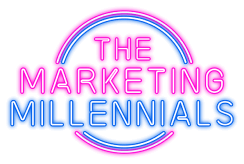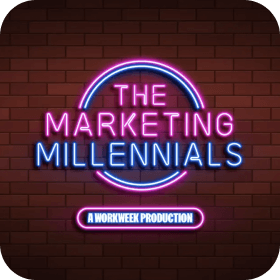I’m super excited for you all to meet Rory.
He’s been Vice Chairman at Ogilvy UK for 17 years (no big deal!), and that’s just ONE of many awesome things Rory does.
He’s also a creator and a writer.
His TedTalks have been viewed 6,000,000+ times, and he’s written several books, including a book about ~MARKETING MAGIC~
(Real title: Alchemy: The Dark Art and Curious Science of Creating Magic in Brands, Business, and Life.)
I wonder if Rory is a Ravenclaw like me?
Oops, sorry! Where was I?
The coolest part about Rory? He’s BOTH a leader and a creative, he knows how (and why) marketing orgs should take creative risks.
I hope he writes a book about that someday (will read this in full — no SparkNotes, I promise.)
For now, here are 5 OF HIS HOTTEST takes from our chat, in his liiightly edited words.
1. How creative questions drive big wins:
This is where rational people often go wrong: They ask a banal question, answer it, and pat themselves on the back.
Just because something makes sense doesn’t mean it’s OPTIMAL.
It’s simply the answer to the best question you’ve asked so far.
When someone comes along with a BETTER QUESTION, there’s a BETTER ANSWER.
So, I would argue that Uber owes part of its success to NOT asking the question: “How do we get people around very, very quickly?”
That would’ve meant a predictive algorithm, and having more cars. But, Uber also has a MAP.
Level up your marketing game
Zero BS. Just fun, unfiltered, industry insights with the game-changers behind some of the coolest companies from around the globe.
No spam. Unsubscribe any time.
That answers a more interesting question: “How can we make waiting for a cab feel less frustrating?”
By giving you a sense of certainty about the arrival time of the car, it transforms the experience of waiting.
You can make a cup of tea if you know the cab (or in this case, Uber) is coming in 15 minutes.
It’s an answer to a better question.
2. Why video calls didn’t take off until COVID:
It turns out video was one of those things that are only obvious in retrospect (like mobile phones).
We forget this, but in the ‘90s, there were people saying, “I’ve got payphone, what do I need a mobile phone for?”
Once you have a mobile phone, the need for it becomes SELF-EVIDENT.
Also true of video conferencing.
We knew it offered desirable benefits, but we didn’t BELIEVE in it until COVID forced us to experience it.
It was a kind of collective experiment in solving a coordination problem.
Now, it’s become highly visible that commuting soaks up a lot of time, which people prefer to spend productively.
We did this brief experiment — a year and a half where everybody tried working remotely, because they had to — and now, we won’t revert to the status quo.
3. How corporate culture hurts CREATIVITY:
Anybody in a corporate setting has more downside risk than upside opportunity.
It’s very, very easy — arguably even sensible — to adopt a “Whatever you do, don’t mess up” mentality.
Now, if you’re an OUTSIDER in an organization, arguably your risk profile is slightly different.
You have a disproportionate incentive to make a name for yourself.
You take bigger risks than the Princeton graduate.
Which might be an argument for diverse hiring: different people have different attitudes towards risk.
If you’ve got nothing to lose, you can take risks.
Or if you’re very, very rich, you can take risks because you can afford to lose.
People in the middle tend to become highly conformist.
4. Why innovations like the air fryer need EARLY ad spend:
I’ve been evangelizing the air fryer. It’s a product that is waiting for its tipping point.
I kept arguing to Phillips: “Why don’t you just advertise this thing? It will likely make the tipping point come faster (they could never make the business case).
Now, they probably have to advertise air fryers like CRAZY.
There are loads of competitors and imitators in the market.
This is one of the mistakes you make if you’re obsessed with return on marketing investment.
SHORT-TERM, it’s easy to advertise when the market’s growing fast.
It’s difficult to justify advertising spend when the market’s in an early phase.
But in that early phase, advertising can be most effective.
It isn’t creating immediate sales, but it’s creating normalization around the product.
IT’S CREATING NORMAL.
5. Why “too expensive” depends on context:
The PROBLEM with economics is it thinks that money is money.
But, if you say there’s a 1 in 5 chance you’ll get your flight for free, build in a bit of gambling, that’s more FUN than 20% off.
Isn’t it?
Money is meaning, and the meaning is CONTEXT DEPENDENT.
Whether something’s expensive (or cheap) is not a product of the dollar amount.
It’s a product of perception.
Want The Marketing Millennials in your inbox? Subscribe to the newsletter.


